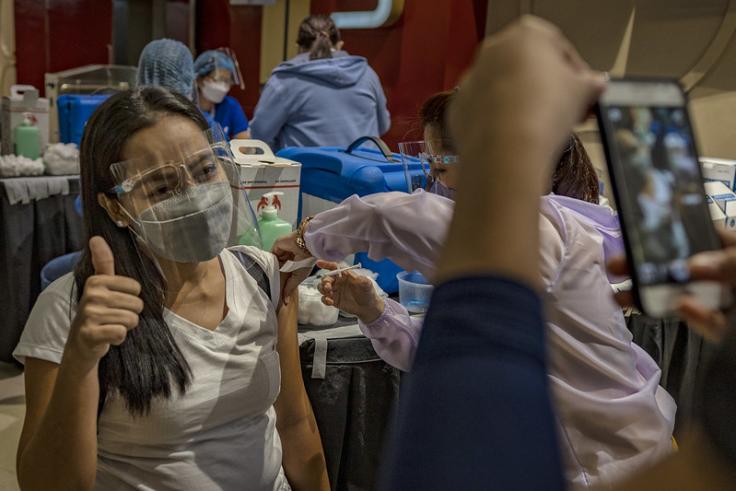 Resilient Philippines
Resilient Philippines
Background
The Philippines was awarded US$225 million from the Pandemic Fund to reinforce its ability to prevent, detect, report, and respond to epidemic threats through an integrated One Health approach. The grant mobilized an additional US$889 million in co-financing and US$112 million in co-investment.
The Philippines faces complex public health challenges, not simply because the country spans more than 7,000 islands. Risks stem from frequent tropical storms caused by climate change, the country’s sizeable livestock population, declining immunization rates, and an underdeveloped primary health care system. The Resilient Philippines project focuses on the regions and provinces that are most vulnerable to epidemic outbreaks, including swine fever and avian influenza, as well as the areas that the Pandemic Fund prioritizes: surveillance, laboratory systems, and workforce development.
Aligned with the Fund’s emphasis on diverse, multisectoral collaboration, the project is led by the Department of Finance, the Department of Agriculture, the Department of Health, and two Implementing Entities: the Food and Agriculture Organization of the United Nations (FAO) and the World Bank. Additional partners include the Asian Development Bank (Health System Enhancement to Address and Limit COVID-19 program), the Philippine Inter-Agency Committee on Zoonosis, and TGFC19RM, as well as a range of civil society organizations.
Project objectives
With the Pandemic Fund grant and the support of its project partners, the Philippines seeks to boost the country’s resilience through more efficient detection of and response to public health threats.
Implementation arrangements and key components
Activities comprising each project component include:
- Improving surveillance. This component of the project focuses on enabling rapid reporting, coordination, and information-sharing across the human, animal, and environmental health sectors. It includes digital readiness assessments, disease monitoring tools and dashboards, community-based One Health surveillance, and antimicrobial resistance (AMR) surveillance linked to antimicrobial use.
- Upgrading and networking laboratories. This component of the project focuses on developing a national, multisectoral plan to equip, upgrade, and connect national and subnational laboratories. It includes innovative testing and surveillance methodologies, as well as genomic sequencing and analysis of vaccine-preventable diseases, viral respiratory diseases, zoonoses, and AMR.
- Developing the health workforce. Activities in this area focus on ensuring that the health workforce -- spanning health care workers, veterinarians, field responders, and local government and community workers – are trained on the core International Health Regulations capabilities, as well as community-based surveillance, risk communication, and emergency response, and that this workforce is able to surge during outbreaks.
Expected outcomes
With the Pandemic Fund grant and the collaboration of project partners, Resilient Philippines aims to:
- Harmonize surveillance systems across the human, animal, and environmental health sectors
- Enable laboratories able to confirm pathogens accurately and swiftly
- Train human and animal health workers in One Health surveillance and laboratory functions
- Mainstream the project throughout government policies and budgets
- Ensure that community members are satisfied with the One Health approach
For general inquiries: the_pandemic_fund@worldbank.org
-
 RegionProject RegionsEast Asia & Pacific
RegionProject RegionsEast Asia & Pacific -
 CountryProject CountriesPhilippines
CountryProject CountriesPhilippines -
 Implementing EntitiesImplementing EntityFAO WB
Implementing EntitiesImplementing EntityFAO WB -
 Amount Approved (US$) $24,932,926
Amount Approved (US$) $24,932,926 -
 Total Co-financing
Total Co-financing
(in kind & in cash) (US$) $889,178,575 -
 Total Co-investment
Total Co-investment
(in kind & in cash) (US$) $111,759,136

